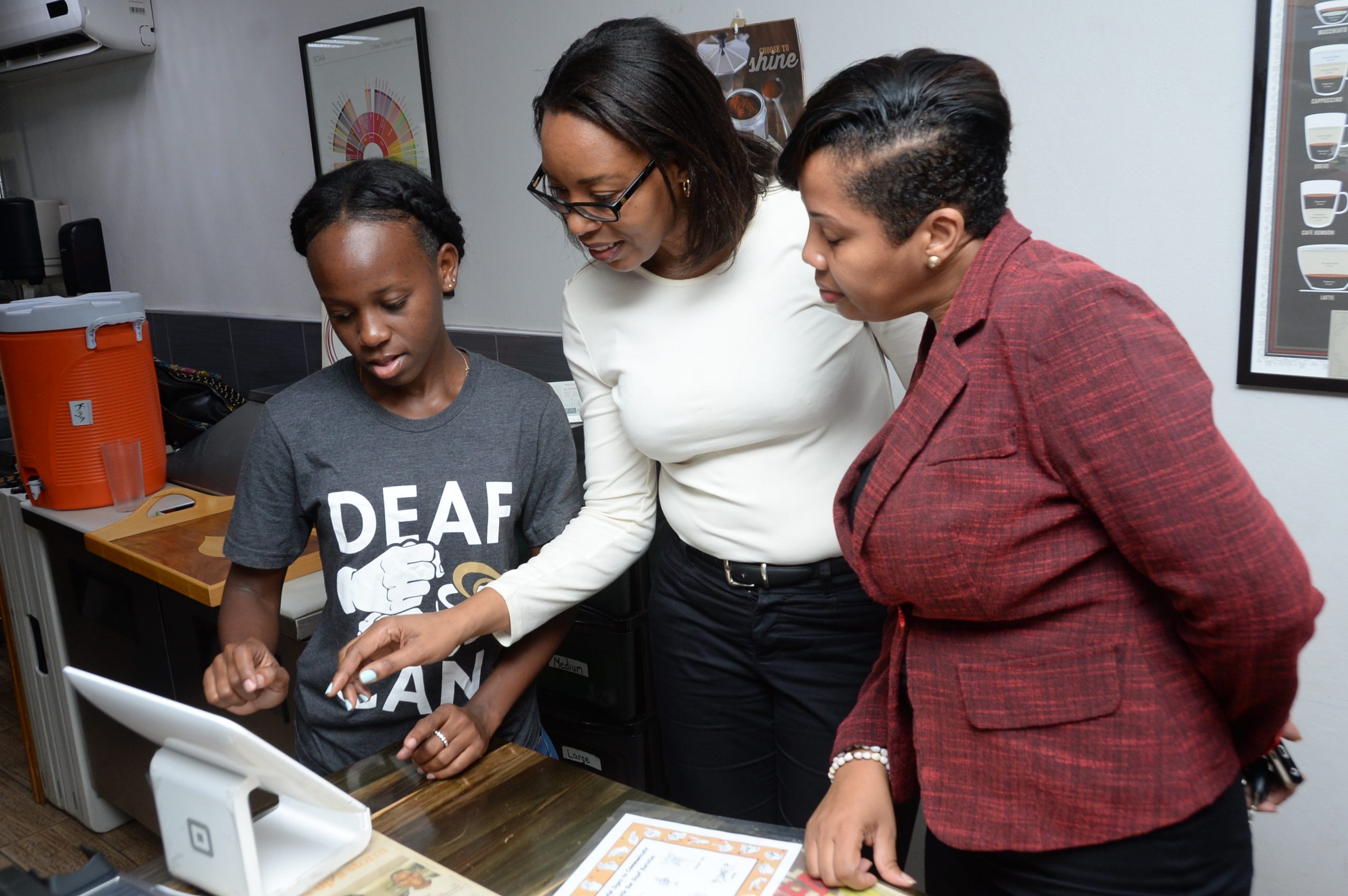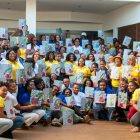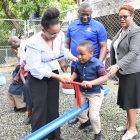WHEN the owners of Deaf Can! Coffee were approached by the Jamaica National Foundation in 2016 to join its Social Enterprise Boost Initiative (SEBI), they had one major concern — they did not know how to run a business.
Fast-forward almost two years and numerous training sessions later, Deaf Can! Coffee, through the SEBI, is doing much better financially.
But even though the company is tight-lipped about its finances, Opal Whyte, project manager of JN Foundation/USAID SEBI Programme, has argued that the social profit of developing a business managed and operated by hearing-impaired entrepreneurs is just as important as its monetary gain.
“Deaf Can! really represents the best of a business with a purpose… It is very clear what the mission of Deaf Can! is: to engage, equip and empower people who are deaf,” Whyte told the Jamaica Observer on Thursday at the public launch of Deaf Can! Coffee’s E3 Café in Cassia Park, St Andrew.
“The JN Foundation sees the work of Deaf Can! as not only impacting those who are employed to Deaf Can!, but the deaf community is so enthusiastic about the possibilities that are there. We are changing people’s perspective of how they view people who are deaf, and what we ultimately hope is that the rest of Jamaica will include persons who are deaf into mainstream activities,” Whyte added.
The launch, which was an effort by JN Foundation to sensitise the public to the existence and operations of the E3 Café, was attended by various representatives from public and private businesses in corporate Jamaica, who were treated by the Deaf Can! staff to a variety of coffee beverages and pastries.
The café also carries a line of branded Deaf Can! T-shirts, hand-sculpted coffee mugs, and handcrafted bracelets and earrings.Whyte encouraged the attendees to support the café — which boasts modern amenities, such as high-speed Wi-Fi access, a flat-screen television for presentations and state-of-the-art coffee-making equipment — by making it their choice for coffee and other delights, as well as booking the space for small business meetings.
“It is another revenue stream for Deaf Can!,” she said. “But you will also be supporting the cause of empowering Jamaica’s deaf community.”
E3 Café, which stands for ‘engaging, equipping, and empowering’ Jamaicans who are deaf is located at Caribbean Christian Centre for the Deaf Kingston campus, one of several locations from which Deaf Can! Coffee is sold.
Other outlets are at the United States Embassy, Toyota Coffee House, Jakes Hotel, Script Café, Jablum Coffee House at the NCB Towers, Morgan’s Creek and Bookophilia.
In addition, the company operates a mobile unit.
Having graduated from the incubator phase of the SEBI — which provided training in brand development, product pricing and sales, negotiating with private sector and staff recruitment — Deaf Can! Coffee has matriculated to the accelerator phase, which offers training in leadership development, management of employees and private sector partners, and management of growth.
Noting that through the SEBI, Deaf Can! has increased its number of employees from two to more than 26, Whyte told Sunday Finance that she hopes all Jamaicans will be inspired by the company.
“Deaf Can! represents not just empowerment for deaf persons, but for everybody,” she said. “Everybody can, and Deaf Can! is one of the greatest symbols of that. It doesn’t matter what your limitation is or what access you think you didn’t have. It is possible for anybody to achieve their goals once they work towards it and create that structure.”
The SEBI, which began in 2013, is a programme created by JN Foundation, with the support of the United States Agency for International Development, aimed at creating an enabling business environment for social enterprises in Jamaica, and assisting them in transitioning their grant-funded operations into viable, profit-making businesses which can support their social missions.
See the original article here!




